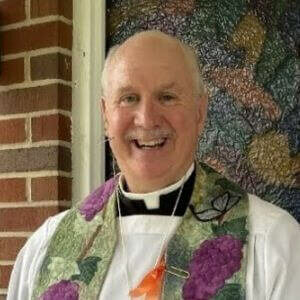This time of year, many enjoy the fresh produce of gardens and farms. In winter, “fresh tomatoes” taste artificial like Styrofoam with flavoring injected.
Our text is part of ancient oral tradition, shared first in ancient times, then written after Israel had come out of Egypt and settled in Cana. We recount the creation by the Master Gardener. The image of the Fertile Crescent of Genesis is an image used to great effectiveness by J.R.R. Tolkien in his allegorical tales of “Middle Earth,” and of Hobbits, and a ring.
Eden perfectly under God’s care and protection receives God’s perfect irrigation through mist from the ground. The human creature is taken from the humus, or Adam from the adama. The human creature is given limits to what can be eaten. Adam is told that “the tree of the knowledge of good and evil you shall not eat, for in the day that you eat of it you shall die.” The instruction is as the twentieth-century theologian, Karl Barth had said, not to be seen as the warning of some primeval “apple poisoning.” Instead, God as Divine Creator has established limits to maintain the right relationship between the creature and the Creator. In God’s wisdom, all things have been created by God, but this is a wisdom that is “too wonderful” for mortals (Job 42.3; Psalm 139.6).
U.S. Surgeon General, Vice Admiral Vivek H. Murthy, in May 2023 released an advisory on the “Epidemic of Loneliness and Isolation.” In our story, God provides amid such reality. “It is not good that the man should be alone; I will make him a helper as his partner.” The Hebrew word used here is etzer (helper). Throughout the Hebrew Bible, the word etzer is used to describe God. In this most ancient of the two creation stories, Adam is an etzer to Eve, and Eve is a helpmate to Adam. This mutual role of the two being etzer to the other, sharing in one flesh, becomes the basis of the marital relationship in which the “two become one flesh.”
Unlike our salvation, all human relationships—including the intimacy of the marital relationship—require work on our part. Yet, God as our etzer, and Master Gardener cultivates, nurtures, and assists continually in all human relationships. Without God’s nurture, relationships soon become the artificial tomatoes of those Styrofoam-tasting tomatoes of winter.

The Rev. Dr. C. Pierson Shaw, Jr. has 29 years in ordained ministry and holds a Master’s in Sacred Theology in Church History and Theology (LTSS), and a PhD in Systematic Theology from the University of St. Michael’s College in the University of Toronto. He is married to Karen Russ Shaw and together they are the parents of two adult daughters, Sarah and Taylor Russ.
To Consider
1. Amid the current “Epidemic of Loneliness and Isolation,” how has the fruit of human relationships become as poor quality as the “fresh tomatoes” of winter?
2. For many, because of human sinfulness and brokenness, living as God’s creation after the “Fall,” human relationships of all kinds can become a burden, often challenging or even unbearable. How does seeing God as the Master Gardener, and seeing ourselves being etzer to each other as foundational to marriage—and all human relationships—help us to see a restoration of joy in all our relationships?
Prayer
God, we give thanks for the gift of relationship and the example of seeing ourselves as helpmates to one another in all of our relationships. Restore our joy in relationships. Amen.
